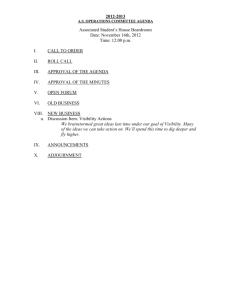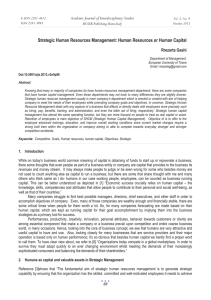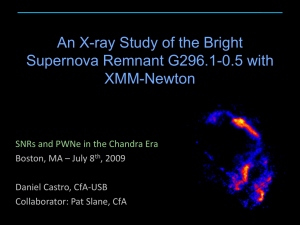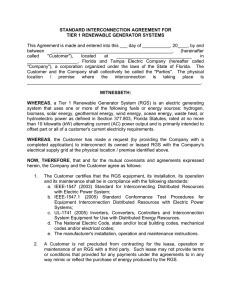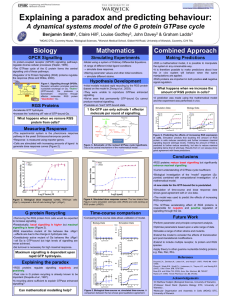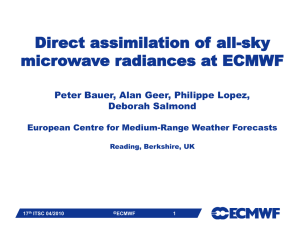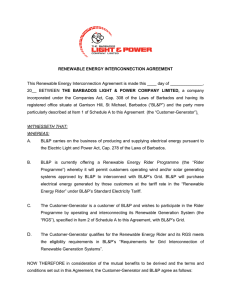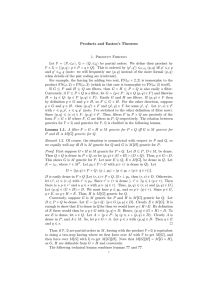X-ray Assignment Solution (lecture 2)
advertisement
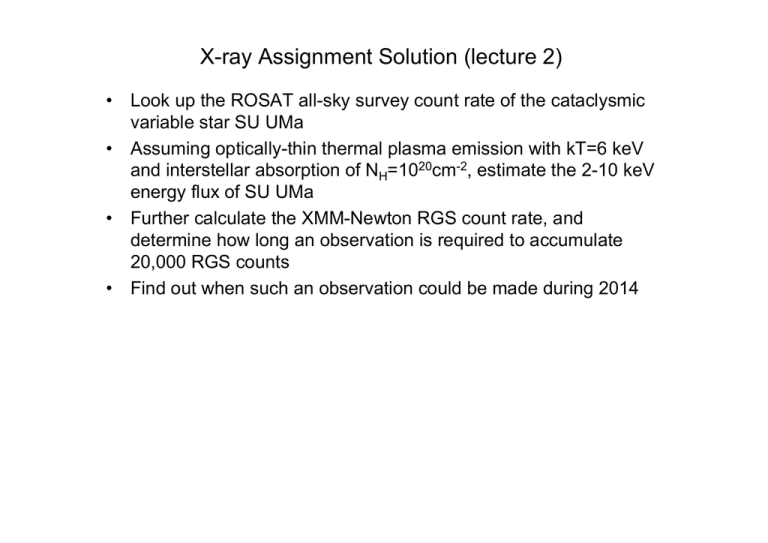
X-ray Assignment Solution (lecture 2) • Look up the ROSAT all-sky survey count rate of the cataclysmic variable star SU UMa • Assuming optically-thin thermal plasma emission with kT=6 keV and interstellar absorption of NH=1020cm-2, estimate the 2-10 keV energy flux of SU UMa • Further calculate the XMM-Newton RGS count rate, and determine how long an observation is required to accumulate 20,000 RGS counts • Find out when such an observation could be made during 2014 • ROSAT all-sky survey count rate from HEASARC browse • Select ROSAT all-sky survey source list • ROSAT PSPC count rate is 0.99 cts/sec • Convert to flux using given spectrum in WebPIMMS • Giving: • Now converting instead to XMM-Newton count rates and scrolling down to the RGS (reflection grating spectrograph) • Giving a total count rate (both orders of both RGS instruments) of 0.47 cts/sec and 20,000 counts in 43 ks • Finally assess SU UMa visibility with XMM-Newton using visibility tool on XMM Science Operations Centre (SOC) webpage • Many visibility windows in Mar-May and Sept-Nov – But visibility is poor and longest windows are only 12ks – So observations must be split across at least 4 XMM orbits.
